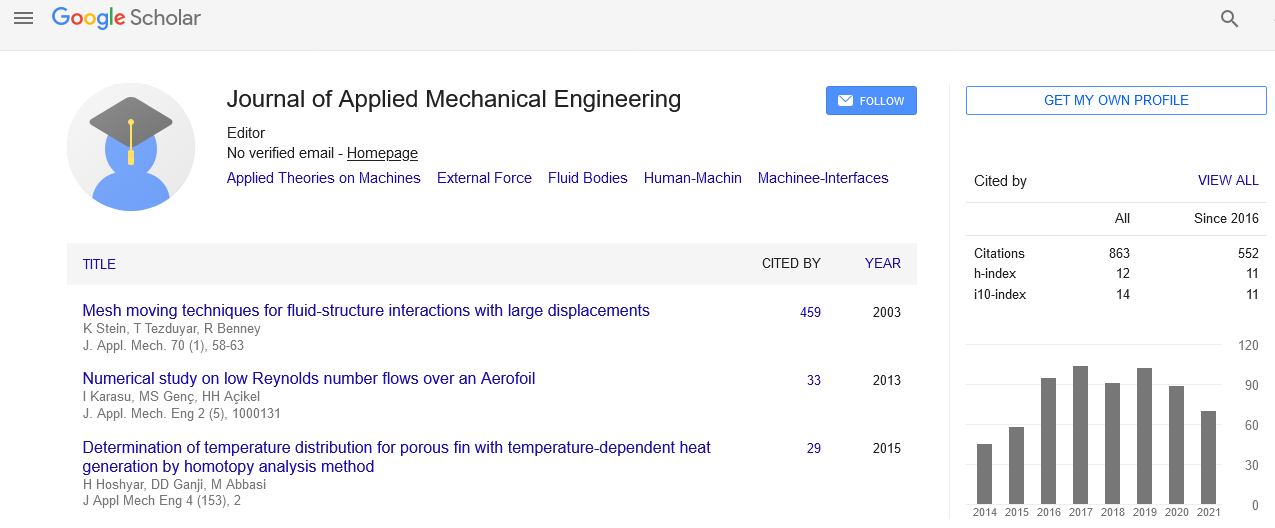Indexed In
- Genamics JournalSeek
- JournalTOCs
- CiteFactor
- RefSeek
- Hamdard University
- EBSCO A-Z
- OCLC- WorldCat
- Publons
- Google Scholar
Useful Links
Share This Page
Journal Flyer

Open Access Journals
- Agri and Aquaculture
- Biochemistry
- Bioinformatics & Systems Biology
- Business & Management
- Chemistry
- Clinical Sciences
- Engineering
- Food & Nutrition
- General Science
- Genetics & Molecular Biology
- Immunology & Microbiology
- Medical Sciences
- Neuroscience & Psychology
- Nursing & Health Care
- Pharmaceutical Sciences
Interoperability of engineering informatics: Challenge and opportunity
International Conference and Exhibition on Mechanical & Aerospace Engineering
September 30-October 02, 2013 Hilton San Antonio Airport, TX, USA
Yongsheng Ma
Keynote: J Appl Mech Eng
Abstract:
This talk is intended to highlight advanced modelling and application of engineering knowledge in product development and process management in industries. Computer aided tools have been widely used in the design manufacturing activities. However, it seems clear that most of the tools are not readily able to incorporate engineering semantics into their solutions. It is a challenge for the industry to model and apply comprehensive engineering knowledge, constraints, procedures and concurrent aspects of design and manufacturing in a systematic and sustainable manner. The speaker intends to expand the scope of feature technology into more open engineering semantic modelling and provides a framework of technological solution for system integration and information sharing. This talk presents a set of researched methods that can consistently represent and uniformly manage engineering semantics in the ever dynamic evolvement of modern enterprises. With a proposed common infrastructure of product and process modelling, the interoperability among different computer systems is addressed based on a fine grain feature-based informatics approach. This talk will also cover some insightful case studies that show the promising application prospects at different stages and in different areas of design and manufacturing. The plenary talk will provide some useful references, guidelines and helpful tips for engineering semantics teaching.
Biography :
Yongsheng Ma is a Professor in the Department of Mechanical Engineering, University of Alberta (U of A), Canada. He joined U of A in 2007. Before that, he had been with Nanyang Technological University, Singapore, since 2000. From 1993 to 2000, he was with Ngee Ann Polytechnic and then the Singapore Institute of Manufacturing Technology (SIMTech). He received his B. Eng. from Tsing Hua University (1986), and both M.Sc. and Ph.D. degrees from Manchester University, UK (1990 and 1994). His main research areas include CADCAM, engineering informatics, feature-based product and process modelling, and product lifecycle management (PLM).

